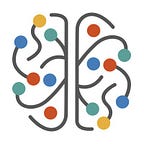Would you Stick a Rice-Sized Sensor Inside You?
Welcome to Future Health, your weekly update on the impact of AI in Health, Sport and Life Sciences.
This week we have two news stories about AI partnerships initiated by major USA healthcare and insurance providers. This 2018 year-in-review from Becker’s Hospital Review, like many others, starts to illustrate how the market for Healthcare AI, particularly in the USA, is evolving as a high-stakes competition between the biggest established healthcare providers (e.g. UnitedHealth, Anthem) and tech industry giants (e.g. Apple, Google, Amazon) as they pour investment into acquisitions, talent and new initiatives. It’s a familiar story across many industries at the moment; as Marc Andreessen famously said: “Software is eating the world”. The question for 2019 is to what extent will established health companies be on the menu?
In this week’s Future of Health briefing:
🧠 How to slow cognitive ageing and promote brain health using game-based apps
⚠ Allergies and how to detect them using AI
⌚Students have developed wearables to detect an opiate overdose
Disease Identification and Diagnosis
Israeli healthcare start-up Zebra Medical Vision aims to identify exotic diagnoses
While radiologists across the world have been using computer aided detection (CAD) based on traditional image processing tools for the last decade, the system generates a large number of false positive diagnoses. Zebra’s deep learning-based detection platform has already led to a deep reduction in false diagnosis rates in trials and pilot programs abroad. “We are in a hurry to create as many artificial intelligence applications as possible,” said CEO Eyal Gura. “So far we have touched on breast cancer, initial applications in chest X-rays, initial applications for head and chest CT scans, but this is just the tip of the iceberg.
Image credit: HIT Consultant
Controlled Trial Deployment
Anthem Takes Aim at Allergies With AI-Driven Data Trial
Participants in a virtual clinical trial can submit personal health data to generate AI-powered insights into their own allergy risks. Rajeev Ronanki, Anthem’s chief digital officer, explains the trial, in partnership with doc.ai, draws on participant submissions of biological information including age, height, and weight; physical activity such as daily number of steps from wearable technologies — smartwatches and fitness trackers, for example — and location-based exposure to weather patterns, pollen, and air pollution, among other data points.
CognitionX Research
Ethics in AI: explore the risks and opportunities facing business, society, legislators and regulators.
£395+VAT for one licence. £1995 for 10.
Research
Machine learning can help predict healthy ageing
Researchers from the Salk Institute have identified some key molecular signatures across all age groups that predict ageing. The study was published in the journal Genome Biology. Said Saket Navlakha, a co-senior author of the study, “we want to develop algorithms that can predict healthy ageing and non-healthy ageing, and try to find the differences.”
Researchers claim AI system can distinguish between dyslexic and skilled readers
The Israel Institute of Technology’s Laboratory of Clinical Neurophysiology and the University of Haifa’s Department of Computer Science claim to have developed an AI model that can automatically — without human intervention and with state-of-the-art precision — identify dyslexic readers.
Sensor Data Analytics
How lab-on-a-chip technology is turning smartphones into food sensors
A prototype handheld spectrometer, a point-and-click device that can see, via infrared radiation, can determine how apparently identical consumer products can differ in their chemical make up. BBC science presenter Michael Mosley puts the device through its paces, and the connected smartphone app displays the results. The scanner correctly differentiates between olive and sunflower oils, rye and wheat flour, sugar and the sweetener erythritol, and silk and polyester. Other people have a go too — no training required.
This wristband detects an opiate overdose
A project by students at Carnegie Mellon could save lives. Called the HopeBand, the wristband senses low blood oxygen levels and sends a text message and sounds an alarm if danger is imminent.
Funding
Iota Biosciences raises $15M to produce in-body sensors smaller than a grain of rice
Fitness trackers and heart-rate monitors are all well and good, but if you want to track activity inside the body, the solutions aren’t nearly as convenient. Iota Bioscienceswants to change that with millimeter-wide sensors that can live more or less permanently in your body.
Partnerships
How Clover Health partnered with MindMate app to help elderly with brain games
The MindMate app combines brain games, healthy nutrition, regular exercise, and social interaction. It encourages its users to make multifaceted, holistic lifestyle changes to help stave off the effects of cognitive decline. Read the interview with Matt Waellert, chief behavioral officer at Clover Health.
